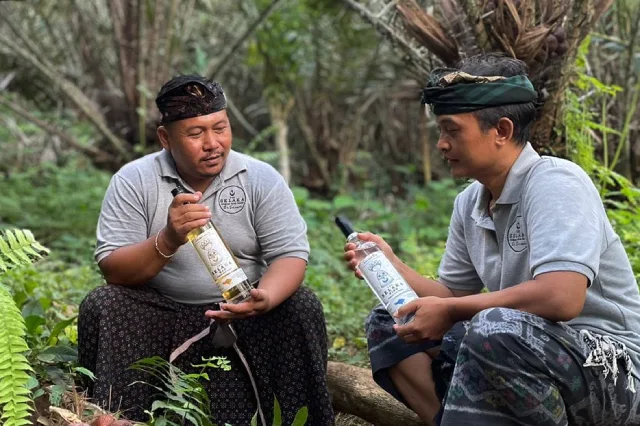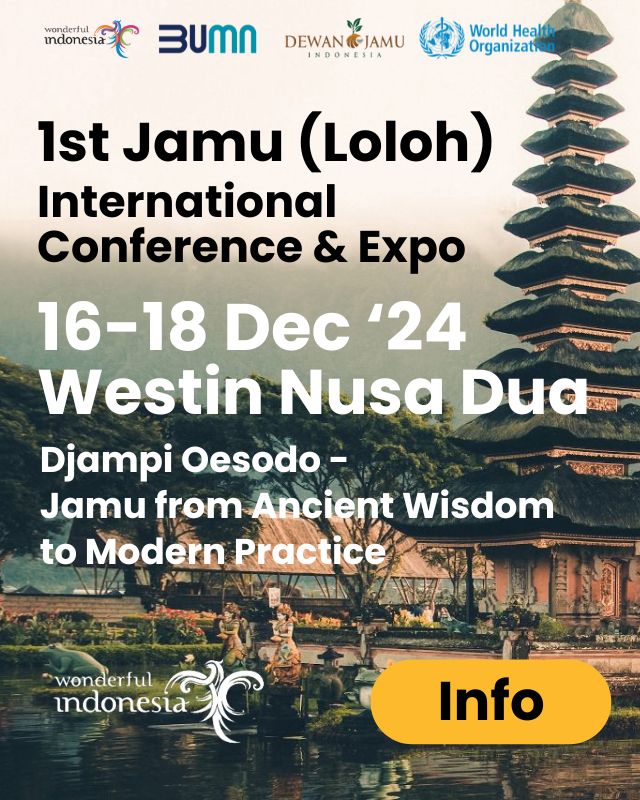Things to Do in Bali
Guide to Jamu (Djamoe)
Jamu (also spelled Djamoe) is Indonesia’s traditional herbal medicine, primarily made into elixirs or tonics that are enjoyed as natural remedies.
Developed over centuries, Jamu is typically crafted from a mix of native plants, roots, flowers, and spices, each selected for specific health benefits. While the most common forms of Jamu are herbal drinks meant to boost immunity, ease digestion, or reduce inflammation, Jamu also extends to oils, scrubs, and massage lotions, showing its versatility as a holistic health practice.
Though its roots lie in Java, Jamu has become a widely recognized wellness tradition across Indonesia.
Jamu and all its variations represent the cultural richness and natural wisdom of Indonesia, offering a holistic approach to health and healing. Whether sipping Jamu for vitality or savoring Loloh for a refreshing break, travelers can experience an ancient practice that continues to be a source of health, tradition, and wisdom in Indonesian culture.
Jamu in Bali (Loloh)
In Bali the term “Loloh” refers to local herbal elixirs or tonics similar to Jamu. In Balinese tradition, Loloh represents herbal concoctions crafted from indigenous plants, leaves, roots, flowers, and spices. This drink is especially well-known in the village of Penglipuran in Bali, where varieties like Loloh Cemcem are popular.
The ingredients and purposes of Loloh drinks often differ slightly from traditional Jamu recipes found in Java, emphasizing Bali’s unique flora and local practices.
Loloh Cemcem, for instance, is prepared with cemcem leaves (a type of sour-tasting leaf) and often mixed with other local ingredients like tamarind and salt to create a distinctively tangy and refreshing drink known for digestive benefits.
Loloh: Bali’s Unique Take on Jamu
While Java has Jamu, Bali has Loloh—a Balinese variant of herbal tonics with slightly different ingredients and cultural practices. Loloh shares the same philosophy as Jamu, promoting health through natural ingredients, but it typically includes local Balinese plants.
Popular Loloh blends, such as Loloh Cemcem (made with cemcem leaves), are known for their refreshing, slightly sour taste and are widely enjoyed for their cooling effects and ability to aid digestion. The Balinese belief in balance and natural harmony is central to Loloh, making it a respected practice, especially in rural villages where the ingredients are grown locally.
In Balinese, Loloh translates simply as “herbal medicine” or “tonic.” Unlike some Jamu preparations that are specific to certain ailments, Loloh recipes are often consumed as daily tonics for overall health, designed to support digestion, circulation, and vitality. These drinks can be enjoyed fresh, often prepared by mixing ground herbs and spices with water and other ingredients, a process that preserves the natural potency of each component.
The History and Cultural Significance of Jamu (Djamoe)
Jamu’s origins reach back over a thousand years, rooted in the ancient knowledge of Djampi Oesodo, a Javanese concept where “djampi” means a sacred spell or health remedy, and “oesodo” implies the balancing of energies within the body. This approach to wellness was heavily influenced by Indonesian animistic beliefs, Hinduism, and later, Islam.
The reverence for Jamu is deeply embedded in Javanese and Balinese society, where its traditions and ingredients are considered sacred gifts from nature. Traditional Javanese healers (often women known as “Mbok Jamu”) would pass down their knowledge through generations, creating a strong cultural heritage that still exists today.
Jamu’s Ancient Reference at Borobudur Temple
Borobudur, an 8th-century Mahayana Buddhist temple in Central Java, holds stone carvings that depict Jamu practices, providing a fascinating historical reference to this tradition. The reliefs at Borobudur showcase scenes where individuals prepare and consume herbal potions, believed to be early forms of Jamu. These illustrations highlight Jamu’s longstanding role in Javanese society, not just as a medical remedy but as a spiritual practice meant to harmonize body and soul. Such depictions emphasize the role of Jamu in the lives of the ancient Javanese, reflecting their profound respect for natural healing and balance.
The Health Benefits of Jamu (Djamoe) & Loloh
Jamu and the Balinese Loloh offer a diverse array of health benefits that have led to its long-standing popularity:
- Anti-inflammatory Properties: Turmeric-based Jamu (like Kunyit Asam) is celebrated for its ability to relieve inflammation and support digestion.
- Immune Boosting: Ingredients such as ginger and galangal strengthen immune response, aiding in the prevention of illnesses.
- Digestive Health: Tamarind and other components aid digestion, detoxify the body, and support gut health.
- Energy and Vitality: Cinnamon and lemongrass infusions in Jamu provide an energizing, caffeine-free alternative to increase alertness and vitality.
These formulations have been refined over centuries and are tailored to the Indonesian climate and lifestyle, allowing users to incorporate Jamu into daily life for ongoing wellness.
Experiencing Jamu and Loloh Today
Travelers visiting Bali and Java can experience Jamu and Loloh in traditional markets, wellness centers, and even cafes specializing in natural remedies. In tourist areas, many cafes and spas now offer modern takes on Jamu, making it accessible to visitors while respecting traditional methods. Travelers may encounter Jamu gendong (Jamu carried by local vendors in baskets) in Java, offering a taste of traditional herbalism, while in Bali, Loloh is often enjoyed at family gatherings or offered in local warungs (small eateries).
Jamu in Modern Wellness
The Indonesian government and wellness organizations actively promote Jamu, aiming to preserve it as an integral part of the country’s cultural heritage. Researchers and herbalists collaborate to standardize Jamu production, ensuring safety and efficacy while maintaining its traditional integrity. With growing interest in natural health practices worldwide, Jamu is increasingly recognized beyond Indonesia, drawing people interested in sustainable and holistic wellness solutions.

























